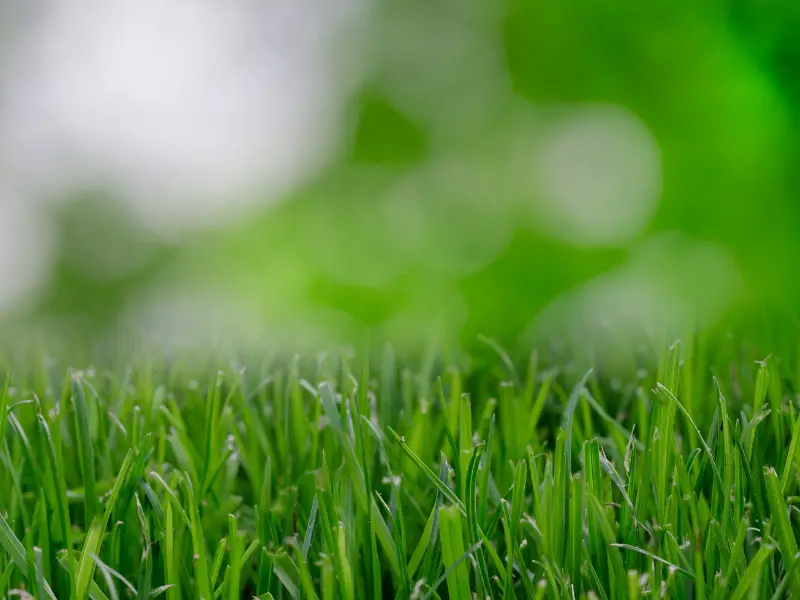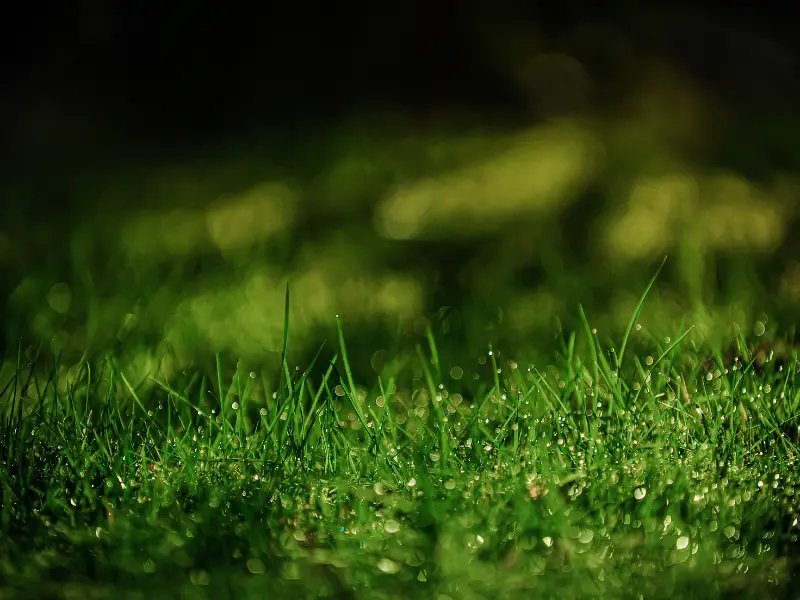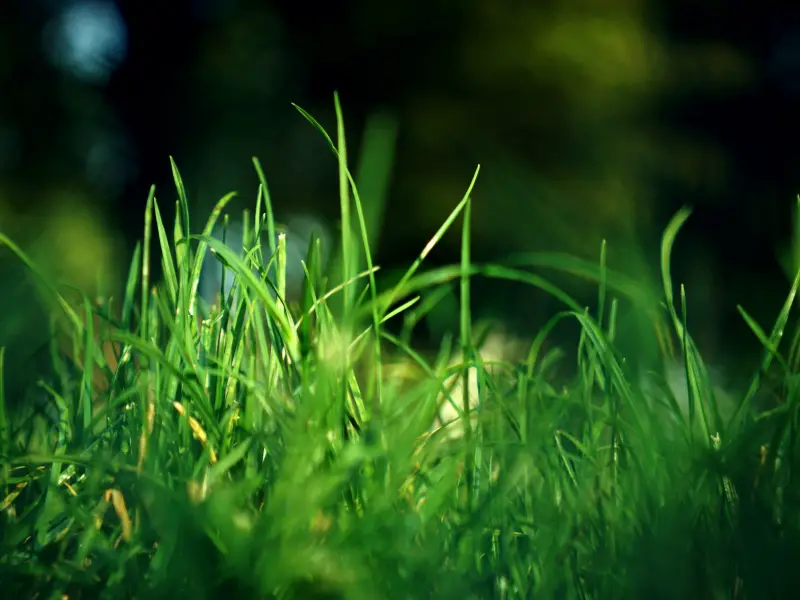Rabbits are herbivores and need to consume a diet that is rich in fiber. One of the most common foods for rabbits is grass, but can rabbits eat grass? This is a question that many rabbit owners may have, especially those who are new to caring for these animals.
The short answer is yes, rabbits can eat grass. In fact, grass is an important part of a rabbit’s diet. However, it’s important to note that not all types of grass are safe for rabbits to eat. Some types of grass can be harmful or toxic to rabbits, so it’s important to know which types are safe and which ones to avoid.
In this article, we will explore the topic of whether rabbits can eat grass and provide information on the types of grass that are safe for rabbits to consume.
What Happens When a Rabbit Eats Grass?

Rabbits are known for their love of eating grass, but what happens to them when they do? Here are a few things to keep in mind:
Nutritional Benefits
Grass is a natural and healthy source of nutrition for rabbits. It contains fiber, which helps to keep their digestive system working properly. Grass also contains vitamins and minerals that are essential for a rabbit’s overall health.
Digestion Process
When a rabbit eats grass, it goes through a process called hindgut fermentation. This means that the grass is broken down in the cecum, a part of the rabbit’s digestive system. The cecum contains bacteria that break down the fiber in the grass, producing nutrients that the rabbit can then absorb.
Potential Health Issues
While grass is generally safe for rabbits to eat, there are a few things to keep in mind. Rabbits that eat too much grass can become overweight, which can lead to other health issues. Additionally, if the grass is contaminated with pesticides or other chemicals, it can be harmful to the rabbit.
Overall, grass is a healthy and natural food source for rabbits. As long as it is consumed in moderation and is free from harmful chemicals, it can be a great addition to a rabbit’s diet.
Should I let my rabbit eat grass?
Rabbits love to eat grass, and it is a natural part of their diet. However, before letting your rabbit eat grass, there are a few things to consider.
The Benefits of Letting Your Rabbit Eat Grass
Grass is a great source of fiber, which is essential for a rabbit’s digestive health. It helps keep their digestive system moving and prevents blockages. Grass also contains essential vitamins and minerals that rabbits need to stay healthy.
In addition to the nutritional benefits, letting your rabbit eat grass can also provide mental stimulation. Rabbits love to forage and explore, and eating grass allows them to do just that.
The Risks of Letting Your Rabbit Eat Grass
While grass can be a healthy addition to a rabbit’s diet, there are also some risks to consider. Grass that has been treated with pesticides or fertilizers can be harmful to rabbits. It is important to make sure that any grass your rabbit eats is free of chemicals.
Another risk to consider is the possibility of your rabbit ingesting harmful plants. Some plants can be toxic to rabbits and can cause serious health problems. It is important to make sure that the grass your rabbit eats is free of any harmful plants.
Conclusion
In conclusion, letting your rabbit eat grass can be a great addition to their diet. However, it is important to make sure that the grass is free of chemicals and harmful plants. If you are unsure about the safety of a particular type of grass, it is best to err on the side of caution and avoid it.
Benefits of Feeding Grass to Rabbits

Grass is a natural and healthy food for rabbits. In the wild, rabbits graze on grass and other vegetation, and it is an important part of their diet. Here are some benefits of feeding grass to rabbits:
1. Provides Essential Nutrients
Grass is a good source of essential nutrients such as fiber, vitamins, and minerals. It contains high levels of fiber, which is important for maintaining good digestive health in rabbits. Fiber helps to keep the digestive system moving and prevents the formation of hairballs.
2. Helps with Dental Health
Feeding grass to rabbits can help to maintain good dental health. Rabbits’ teeth grow continuously throughout their lives, and they need to chew on tough, fibrous foods to wear them down. Grass is an excellent source of roughage and can help to prevent dental problems such as overgrown teeth.
3. Promotes Exercise
Feeding grass to rabbits can help to promote exercise. Rabbits need to move around and stretch their legs to stay healthy, and grazing on grass gives them the opportunity to do so. It also encourages natural foraging behavior, which can help to keep rabbits mentally stimulated and happy.
4. Helps with Hydration
Grass contains a high percentage of water, which can help to keep rabbits hydrated. This is especially important during hot weather when rabbits are at risk of dehydration. Feeding fresh grass to rabbits can help to ensure that they are getting enough water in their diet.
In conclusion, feeding grass to rabbits is a natural and healthy way to provide them with essential nutrients, promote good dental health, encourage exercise, and help with hydration. It is an important part of their diet and should be included as part of a balanced feeding regimen.
What kind of grass do rabbits eat?
Rabbits are herbivores and enjoy eating different types of grass. However, not all grasses are safe for rabbits to consume. Some grasses can cause digestive problems and other health issues.
The following are some of the safe grasses that rabbits can eat:
- Timothy grass: This is the most common type of grass that rabbits eat. It is low in protein and high in fiber, making it an ideal food for rabbits.
- Orchard grass: This is another type of grass that is safe for rabbits to eat. It is similar to Timothy grass in terms of its nutritional value.
- Bermuda grass: This type of grass is safe for rabbits to eat, but it should be given in moderation as it is high in protein and low in fiber.
- Meadow grass: This type of grass is also safe for rabbits to eat. It is high in fiber and low in protein.
It is important to note that rabbits should not be given grass that has been treated with pesticides or other chemicals. These substances can be harmful to rabbits and can cause health problems.
In addition to grass, rabbits should also be given hay as part of their diet. Hay is an important source of fiber and helps to keep rabbits’ digestive systems healthy. Timothy hay and orchard hay are both good options for rabbits.
Overall, rabbits can eat a variety of grasses, but it is important to choose safe and nutritious options for their diet.
How much grass can I give my rabbit?
When it comes to feeding rabbits, grass is one of the most important foods. However, it is important to know how much grass to give them to avoid any health problems. A rabbit’s diet should consist of approximately 80% hay and grass, and only 10-15% vegetables and fruit.
Rabbits can eat as much grass as they want, but it is important to introduce it gradually to their diet. This is especially important if the rabbit is not used to eating grass. Start by offering a small amount of grass and gradually increase the amount over a few days. This will give the rabbit’s digestive system time to adjust to the new food.
It is recommended to give rabbits at least one bundle of grass per day, which is roughly the size of their body. This will provide them with enough fiber to keep their digestive system healthy. However, it is important to make sure the grass is fresh and free from pesticides or other harmful chemicals.
It is also important to note that not all types of grass are safe for rabbits to eat. Avoid giving them grass from areas that may have been sprayed with chemicals or that could be contaminated with animal waste. Additionally, some types of grass, such as Bermuda grass, can cause digestive problems in rabbits and should be avoided.
Overall, grass is an important part of a rabbit’s diet and should be given in moderation. Start by introducing it gradually and make sure it is fresh and free from harmful chemicals. Providing rabbits with enough grass will help keep their digestive system healthy and ensure they are getting the proper nutrition they need.
Conclusion
In conclusion, rabbits can eat grass, and it is a natural part of their diet. However, it is important to ensure that the grass is fresh, free from pesticides, and not contaminated with any harmful substances. Additionally, it is recommended to introduce grass gradually into a rabbit’s diet to avoid any digestive issues.
While grass is an excellent source of fiber and nutrients, it should not be the only food in a rabbit’s diet. A balanced diet for rabbits should include hay, fresh vegetables, and a small amount of pellets. Providing a variety of foods can help ensure that rabbits receive all the necessary nutrients they need to maintain good health.
It is important to note that not all grass is safe for rabbits. Some types of grass, such as Bermuda grass, can cause digestive issues and should be avoided. It is always best to consult with a veterinarian or do thorough research before introducing any new foods into a rabbit’s diet.
Overall, feeding rabbits a balanced diet that includes fresh grass can help promote good health and well-being. By following the proper guidelines and ensuring that the grass is safe and fresh, rabbit owners can provide their pets with a nutritious and enjoyable diet.
Related Articles:

